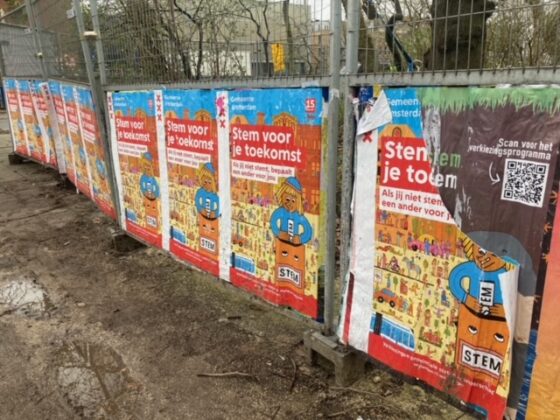Some internationals voted in for their water board, but how many?


Some 900,000 foreign nationals were eligible to vote in the recent water authority elections but statistics suggest very few actually did so.
In Amsterdam, for example, nearly 170,000 non-Dutch nationals could vote, but it is likely only a few thousand bothered to take part.
While there are no official statistics showing how many members of the international community voted, and the figure is not monitored by pollsters, it is possible to make a rough guess.
The water board elections coincided with the provincial council elections, which were only open to Dutch nationals. So by subtracting the number of people who voted in the provincial elections from the water board total, it is possible to get a idea about how many non-Dutch nationals turned out.
In Amsterdam as a whole, for example, nearly 4,000 fewer people voted for the water boards than the provincial councils.
However, the results in 10 polling stations in Amsterdam residential areas popular with international workers indicate some had cast their ballot. At the Concertgebouw polling station, for example, staff said lots of expats had turned up.
Several hundred
In Eindhoven, just a handful more people voted in the waterboard election at Salto International School than voted for the provinces, while at the university polling station, it appears as if fewer than 100 international students and university workers voted.
In Amstelveen, around 800 international workers may have voted, while the figure for Utrecht is roughly 1,000 and The Hague some 1,400. In Delft, where nearly 16,000 could vote, the figure could be as high as 1,000, in Maastricht as few as 300.
Information
Nevertheless, on social media, several polling station workers commented on the large number of expats turning up to vote in different places. ‘Lots of expats, exchange students and refugees were exercising their democratic rights,’ said Martijn van Es. ‘This would be a good reason to make information about the water boards available in other languages.’
As with the 2022 local elections, the provision of information in other languages was patchy. Amsterdam, for example, only published information online, while Eindhoven sent out letters in several languages.
Only six of the 21 water boards had information on their websites in English, while few political parties tried to attract the non-Dutch speaking vote.
Responsibility
Russian national Elena Kazakova, who stood as a candidate for Water Natuurlijk in Brabant, says many of her friends were unaware of their right to vote, and she too was surprised when she first discovered that she could.
‘We need to create better campaigns because the Dutch information passes many people by. We need to start a conversation,’ she told Dutch News. At the same time, she says, voting is a responsibility.
‘It is a great offer that you are being given,’ Kazakova, who is married to a Dutchman, said. ‘If the Netherlands has become your second home… it is your duty to get involved.’
Interest
Despite the lack of concrete figures, some people did turn out for a relatively unknown election and this shows they are interested and involved, University of Amsterdam assistant professor Floris Vermeulen told Dutch News.
Last year Vermeulen carried out research on why so many people fail to vote in the local elections on behalf of Amsterdam city council.
‘If you give the right to vote to a large group and at the same time do nothing to incorporate them into the system you are damaging that system,’ he said. ‘Giving people the right to vote only works if you seriously think about what it means and enable people to take part.’
Thank you for donating to DutchNews.nl.
We could not provide the Dutch News service, and keep it free of charge, without the generous support of our readers. Your donations allow us to report on issues you tell us matter, and provide you with a summary of the most important Dutch news each day.
Make a donation